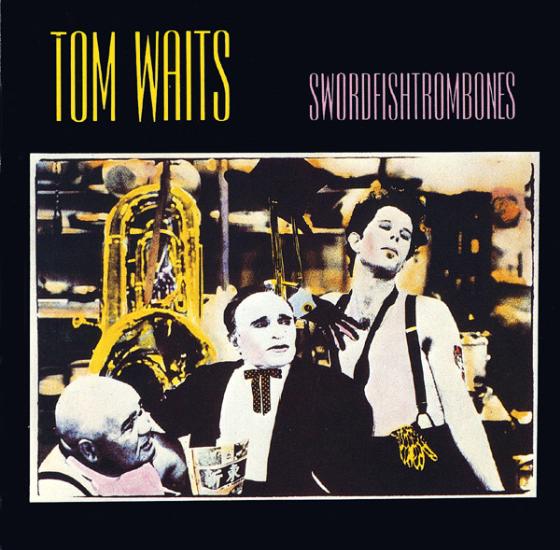

NB – This is where my recent run of archival Tom Waits album reviews is going to end for now. It’s kind of the end of an era, within his music. At least for me, at any rate. Starting here, and ever more so after this, he would move away from his sozzled Beat persona, towards a more overtly theatrical carnival freak-show vibe. As it happens I still love most of his music after this. But it, like Tom, thanks to his marriage to Kathleen Brennan (according to the ol’ mule hisself) changed. Did Delilah cut Swamson’s hair, so to speak? In a way yes. At least in my reckoning. Partly as a result of this, and partly as this album has been reviewed into oblivion (it even has it’s own 33&1/3 book!), my review of this album is shorter than some others, and tries to address it in a way more personal to me.
You may think everything’s already been said about this album… you’re wrong!
Tom’s change of direction, marked by this release, has left me gradually less and less inclined to put the later albums on. It’s like he feared becoming a caricature barfly, so instead became a caricatured carnival freak. His relationship with Kathleen Brennan undoubtedly has some bearing on this (more on this later).
On this pivotal release however, you get the best of both worlds. Many albums after this, and including SFT, start with a rumbling uptempo oddball number (uptempo by Tom’s standards as opposed to Slayer’s): here it’s ‘Underground’ (Frank’s Wild Years starts with ‘Hang On St Christopher’, and Rain Dogs with ‘Singapore’, etc.). The fact this became a bit of a formula could, perhaps, be construed as a little formulaic for such a maverick, but all three tunes referenced are utterly brilliant. So, not too sad, really!
Enough’s been said elsewhere about the Beefheart and classical modernist influences that Brennan’s influence on Waits listening brought to bear around this time. What I want to focus on is the remaining strain of simple romanticism (what Brennan calls his “Grand Weepers”). Brennan’s appearance in Wait’s life seems, from his interviews, to signal a complete change (of personal perspective/heart), redemption, and rescue even. Testament to this wonderful and simple enduring love continues to be evident in his work: ‘Take It With Me’ from Mule Variations being a wonderful example: “ain’t no good thing ever dies”. I ain’t to proud to say I’ve cried nearly every time I’ve listened to that terrifically beautiful and moving song.
‘Johnsburg, Illinois’ is, so I’ve read, written as a love song to Brennan, and, fittingly, it transcends the theatricaltiy of other material here with its straightforward and honest confession of love. I’ve always like this side of Tom most. And it’s in the very fabric of his best music. I feel that one of his most sublime recordings, across his whole rich and varied catalogue, is the fabulously minimal and haunting Rainbirds. After a brief but exquisite ‘glass harmonica’ intro, Waits’ piano and Greg Cohen’s bass paint a picture of such desolate blue beauty it floors me, it’s my all time melancholy desert island disc number one!
Then there are such dramatic tableaux as ‘I Pulled On Trouble’s Braids, which evokes the kind of hoodlum drama he also partook of as Zack in Jim Jarmusch’s totally brilliant Down By Law movie. Shore Leave paints another sleazy picture, and the musicians – particularly the rhythmatists; from jazz and soundtrack percussionist extraordinaire, Victor Feldman, to art-blues-rocker Stephen Hodges – add a slightly dadaist wonky vibe; the shape of things to come, on future recordings like Rain Dogs and Big Time.
One more testimony as to why you should buy this CD!
